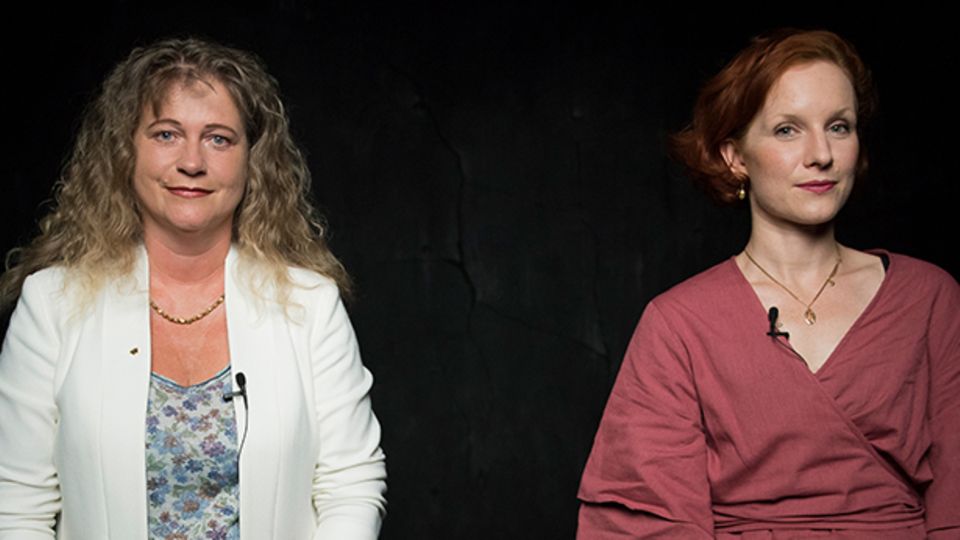questions and answers
This is how abortions could be regulated in Germany in the future
On International Women’s Day in March, there were also demonstrations in Berlin for the right to decriminalized abortion
© IPON / Imago Images
A commission discussed the current abortion law for a year and set up the traffic light coalition. The committee proposes several fundamental changes.
There are several socially explosive topics that an expert committee has taken on: Abortion, egg donation and surrogacy. The former is in Germany’s criminal code, but is partially unpunished; the latter is not yet permitted. Now a commission set up by the traffic light government is proposing changes in a report “on reproductive self-determination and reproductive medicine”. The short report is that star before.
In the coalition agreement, the SPD, Greens and FDP set out to strengthen women’s right to self-determination. The government has already deleted paragraph 219a on public information about abortions. It currently remains unclear how Section 218, which enshrines abortion in the Criminal Code, will be dealt with. Even though the government has set up the commission, it is far from clear whether the proposals will be implemented.
How are abortions currently regulated in Germany?
Abortions are banned in Germany. However, a pregnancy can be terminated without penalty up to the twelfth week if the person concerned can prove that they have had prior advice and have waited three days. If the pregnancy is further advanced, intervention can be made if the physical or mental well-being of the pregnant woman is threatened or if rape led to the pregnancy. For example, there is more information for those affected here.
Abortions are not uncommon procedures, but overall the number is declining. Around 100,000 abortions are carried out every year; in 2022 there were 104,000 recorded cases.
What new rules does the Commission recommend?
The most important sentence is probably: “In the early phase of pregnancy […] The legislature should allow abortion with the woman’s consent (legality and impunity).” As soon as a fetus is capable of independent viability, abortions should remain prohibited. According to medical knowledge, this is the case from the 22nd to 24th week.
The experts also recommend strengthening educational and prevention measures and providing free contraceptives up to an older age in order to avoid unwanted pregnancies. The obligation to provide advice before an abortion is also questioned. If the obligation to provide advice remains, the legislature must ensure that there are no delays that place a disproportionate burden on the pregnant woman, the report says.
Who sits on this commission?
The committee includes a total of 18 experts from medicine, psychology, sociology, ethics and law. Nine experts dealt with the topic of abortion. The final report was actually only supposed to be presented on Monday, but the first results have already been leaked to the media. The “Spiegel” reported first.
The suggestions in the report are based on applicable European and international law, constitutional law and medical and moral standards.
How likely are these new rules to be implemented?
The Ministry of Health and the Ministry of Family Affairs did not initially comment when asked by the DPA news agency and referred to the presentation of the recommendations. Members of the government parties were also there star-Request not available for comment. The Green Family Minister Lisa Paus had indicated several times in the past that she could imagine a new regulation.
When and whether the proposals will be implemented is unclear. Even though women’s right to self-determination is anchored in the coalition agreement, the traffic light currently seems to shy away from the topic. The Union criticized the timing. CDU leader Friedrich Merz warned Chancellor Olaf Scholz against “bringing another major social conflict into this country.” A lawsuit before the Federal Constitutional Court is also an option, according to CSU regional group leader Alexander Dobrindt.

How do Germans feel about abortion?
How Germany regulates the rights of unwanted pregnant women drives people onto the streets every year on International Women’s Day. They demand impunity for interventions and medical care that is as low-threshold as possible. But there are also protests against the right to abortion; the issue is socially charged.
Accordingly, surveys sometimes produce contradictory results. After a ZDF survey Last year, 54 percent of those surveyed said that abortion should continue to be considered a criminal offense but should not be punished. Women and people under 30 in particular spoke out in favor of abolishing Section 218.
Another survey – carried out by the market research institute Ipsos on behalf of the Alliance for Sexual Self-Determination – came to a different result. Here, 55 percent called for the paragraph to be deleted without replacement and a total of 91 percent were in favor of decriminalization (some with conditions).
The fact that other countries are revising their legislation on women’s health is also creating greater public awareness in Germany. The highest court in the USA overturned a landmark ruling on abortion in 2022. Since then, current legislation has been left to the states, about half of which have banned or significantly restricted the procedure. France, on the other hand, enshrined the right to abortion in its constitution a month ago.
Other sources: Short report from the Commission (available on the star before), with information from the DPA, RND, Federal Office of Statistics, Alliance for sexual self-determination



